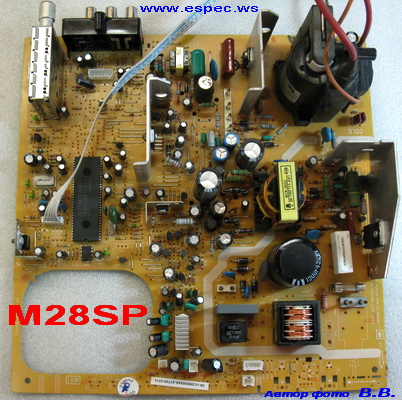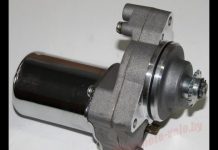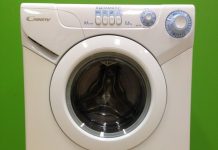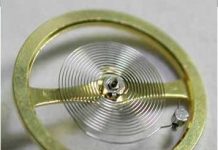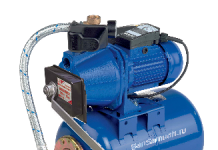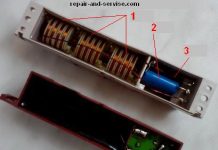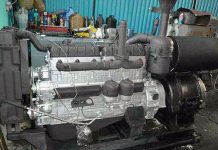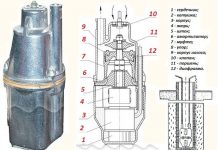In detail: do-it-yourself tcl TV repair from a real master for the site my.housecope.com.
TCL T-2139 chassis LK06.
Composition: B.P. TDA16846, BCK80F, + B Adj. Frame output TA8403K, tuner TELE4-801A, TB1238AN, TA8213K, control 13-TCLM5V-R1P 87CM38N-1E75.
The manifestation of a malfunction: the fold of the personnel at the top of the raster, the bottom of the personnel is slightly compressed 1 cm from the edge of the screen. When decreasing the vertical size in the service, the fold at the top of the frame disappears; when increasing, it turns into a horizontal fold. TA8403K modes are within normal limits. The TB1238AN modes are not normal, at the 28th leg (power of the sweeps) the voltage is understated to + 7.4V. Should be + 9c.
Faulty 8.2v Zener diode D833 in the key chain - stabilizer Q805 KSD882. The zener diode has a barely noticeable kilo-ohm leak.
TCL 2560
Ingredients: TCL-A20V07-TO (8857CRNG5DU1), 24C08WP, NJW1136L, TCL79107D5B3, TDA8172, D1556, TDA8944.
Does not turn on. Broken line transistor D1556. Replaced, on - silence, LED
is burning. Unsoldered 5 and 6 legs 24C08WP - TV turned on. I thought how to find the byte in 24C08WP that blocks the processor on TV on. I solved this problem using the WinHex program and the IC-prog programmer, using the method of comparison and exclusion in the dumps of two firmwares. The byte that blocks the inclusion of TV is at the address: 0010hE (57).
The operating value is 37, at 57 - 80 TV does not turn on, or 50 HZ BLOCK. Option in the service menu "OPT". I attach the working firmware and a fragment of the dump. Hopefully, maybe this info will help someone.
TCL 2560_rab.rar 521 Bytes Downloaded: 601 times
TCL DT29326AS chassis M113
When you turn on the screen, the bottom of the screen strips chaotically. With warming up, the stripes move to the top of the screen. Interference climbs in frames.
The culprit S305 220nF * 63V
The malfunction is typical for many TV models.
| Video (click to play). |
It is impossible to imagine a modern apartment or house without video and audio equipment. This equipment is used every day and therefore breaks down more often than others. There are several ways to repair TVs: send the technician to a service center, call a qualified technician at home, or make repairs with your own hands.
Before you start repairing a TV, you first need to make sure what the problem is. This will also help if you do the repair yourself, and then when the master comes, you will be able to explain the situation to him.
There are several types of malfunctions that can most often be found when a TV breaks down.
- The technique does not turn off. In independence, a CRT TV or a modern LCD model has broken down, this malfunction is associated with a blown fuse. Only different models have distinctive details from each other. You should also pay attention to the diode bridge - perhaps it was he who burned out.
- In both domestic and imported models, the potential can often go astray, for the function of which the posistor is responsible.
- If the plasma TV monitor is broken, then the problem, most often, is interference or drops, light or dark stripes may appear, color changes while watching a program or movie.
- The problem may be a broken cord or a faulty outlet.
If we take into account all the troubles listed above, it is worth saying that the most difficult breakdown is considered to be a screen malfunction. For example, light reflections appear on your monitor after the liquid hits the matrix or the TV is hit, then it is better to carry it to the teleservice. Here it will certainly be repaired, and if the warranty period has not expired, then it will be free of charge or at a reduced price.
See also - How to choose a TV for your home in 2018?
You can try to fix some malfunctions of TVs yourself. And it doesn't matter here - these are LCD models, LCD or LED, it is not necessary to call the wizard if you are confident in your abilities. But caution never hurts, because such TV models are not cheap, and without having any repair experience or knowledge in this area, you can only harm and aggravate the breakdown.
Before you start repairing LED or LCD TVs, you must carefully read the instructions, and also study the principle of operation of your model. Anyone, even one far from this field, will understand that the repair of TVs such as LCD or LED will differ from CRT models. In the latter case, you are guaranteed not to run into a faulty PTC thermistor. The main thing here is to determine the problem, why does the backlight not work?
If you are repairing LCD, LED models, then the only difference here will be what kind of backlight is used. If it is an LCD TV, then the backlighting is produced using fluorescent or fluorescent lamps. For TVs, LED backlighting is produced using LEDs. At this point, the differences between LCD models usually end.
The breakdown can only consist in the fact that there is no power, in order to check this on an LCD TV, you can do the following with your own hands:
- open the back cover of the model;
- remove the wires connected to the matrix;
- connect the working lamp to the contacts;
- there are also LCD models in which more than one light source is provided. In this case, all sources must be tested. Just dismantle the matrix and plug your TV into the network - you can see which LED is the problem.
When a broken lamp in an LED or LCD TV is identified, it must be replaced. This stage requires maximum care from the master, as well as the manifestation of special attention. In some cases, the lamp is removed without removing the matrix, you just need to move the protection elements with a rubber gasket and pull out the lamp with a soldering iron. Similarly, it is necessary to mount a working light bulb. Now we can congratulate you - you did the repair of the LCD TV with your own hands! Just pay attention to one important nuance - the new light bulb must fully meet the parameters and dimensions of the broken one!
To repair TVs yourself, look carefully at the matrix! If there are "unhealthy" streaks here, then the breakage is in the matrix. Have a new part? Then everything is simple! You change it and turn on the TV, if it works, then you have accurately identified the breakdown.
If the reason for the breakdown of LCD TVs is the screen, then it is best to purchase new models of LCD or LED equipment. It is not recommended to change the screen of LCD and LED models, as it is impractical! This also applies to the LCD matrix.
What could be the problem with a malfunctioning plasma TV? If it is necessary to repair plasma TVs, then proceed in the same way as described above. Just adapt it to your specific situation. This description can be applied to any model of plasma TV, just stock up on the necessary tools in advance.
Although today most users prefer to use plasma, many still watch programs on more outdated CRT models. Let's find out how to repair a breakdown in such TVs. Below is a step-by-step instruction that will help you repair your electron beam product with your own hands.
- If you do not turn on such a device, check first of all the fuses. In these TVs, the back is made up of panels. Therefore, it is necessary to unscrew that part of the panels. Under such panels you will find a board and the power terminals must be connected to the fuse. They are connected to a conventional incandescent lamp, or rather to its base, after which the TV must be connected to the network. In the event that your equipment is in good working order, the lamp will go out after switching on, otherwise, when the fuse has blown, it will either not work at all, or it will constantly burn.
- The diode bridge may also break. It should only be borne in mind that it is necessary to regulate and repair it only after making a dial.In this case, not only a multimeter is used, but also a product passport, which indicates the main parameters of this model.
- The most difficult breakdown in a TV with a kinescope is a posistor. To check with your own hands, you must first turn off the power circuit, and then turn it on. In this case, the lamp must be monitored. If the work lamp goes out, then it can be said that the posistor is faulty. To make repairs, it is necessary to adjust the resistance of the network and only ventures to change this part.
But not only the matter may be in the posistor, transistors and capacitors burn out in CRT models. The diagnosis of this breakdown can also be made visually. If the condensate is blackened or cracked, then we replace it with a serviceable analogue. Now you know why the TV does not work and how to fix it yourself.
If the TV breaks down, entrust the technician to professional craftsmen. You just need to call a specialist who will promptly repair TCL TVs at the customer's home at a certain time.
Our ReMobi service center carries out high-quality repairs of out-of-order equipment and electronics.
Our operator will quickly call you back and answer your questions ›
- Professional urgent repair of TCL TVs, performed by qualified specialists with experience, who successfully eliminate any malfunctions, regardless of the degree of complexity,
- Nice cooperation, high level of service,
- Prompt home visit after registration of the application on any day, since we work seven days a week and on holidays,
- Certified original components, parts ordered from the manufacturer.
- The ability to fix the breakdown on the day of order,
- Free delivery of the device to our service center.
- TV repair warranty.
- Affordable reasonable prices.
We employ experienced specialists who are fluent in modern innovative methods of repair, therefore they perform it efficiently and efficiently. They regularly improve their skills and professional skills. You should not try to fix the malfunction yourself, as the TV is a complex device that is not easy to repair. Entrust the work to a telemaster with the necessary skills and knowledge. We have modern equipment to eliminate any malfunction, allowing you to restore the TV in a short time.
We begin our work by performing a professional comprehensive diagnostics, which allows us to determine the nature of the malfunction, the prices for all types of services.
We offer for our customers only high quality of services and favorable prices for TCL TV repair... The cost is determined by the amount of work performed, the replacement of necessary components, the complexity of the breakdown. The wizards will replace the matrix, replace the backlight, display, screen, repair the board, tuners, connectors, firmware, etc. We will provide advice on the operation of your particular device. When placing an order, you must indicate the model, brand, type of breakdown.
We will eliminate any malfunction: image distortion, no sound, does not switch channels, does not turn on, makes noises, dark screen, etc. Call, make a request, and we will help you to cope with any problems.
It is no secret that a breakdown of a television receiver can ruin the mood of any owner. The question arises, where to look for a good master, do you need to take the device to a service center? You need to spend your time on this, and what is important - money. But, before calling the master, if you have basic knowledge of electrical engineering and know how to hold a screwdriver and a soldering iron in your hands, then repairing the TV with your own hands in some cases is still possible.
Modern LCD TVs have become more compact and easier to repair. Of course, there are breakdowns that are difficult to detect without special diagnostic equipment. But most often there are malfunctions that can be detected even visually, for example, swollen capacitors... With such a breakdown, it is enough to evaporate them and replace them with new ones with the same parameters.
All TV sets are the same in their structure and consist of a power supply unit (PSU), a motherboard and an LCD backlight module (lamps are used) or LED (LEDs are used). It is not worth repairing the motherboard on your own, but the power supply unit and screen backlight lamps are quite possible.
As already mentioned, the design and principle of operation of LED and LCD TVs, regardless of the manufacturer, are the same. Of course, there are some differences, but they do not play a significant role in the diagnosis of faults. Often, in the event of a problem with the power supply, the LCD TV does not turn on at all, while there is no indication, or it turns on for a while and turns off spontaneously. Using an example, the repair of a DAEWOO LCD power supply unit (can be applied to plasma) is considered, which is not much different from repairing an LG TV, as well as Toshiba, Sonya, Rubin, Horizon and similar models.
- First of all, before you repair the TV, you need to remove the back panel of the device with a screwdriver by unscrewing the screws. On some models, the rear wall may be latches installedwhich must be handled with care so as not to break them.
- After removing the cover, you will see the power supply unit, consisting of several modules on the left, and the motherboard on the right.
- On the power supply board you can see 3 transformers: the bottom one is the mains rectifier choke, the top one on the left (large) feeds the inverter, and on the right is the standby power supply transformer. You need to start checking with it, since it turns on the standby mode of the TV receiver.
- Duty transformer when the device is connected to the network, it should give out a voltage of 5 V. In order to correctly find the wire on which you need to measure the voltage, you can use the diagram, or you can see the markings on the case. In this case, opposite the desired contact is written - 5 V.
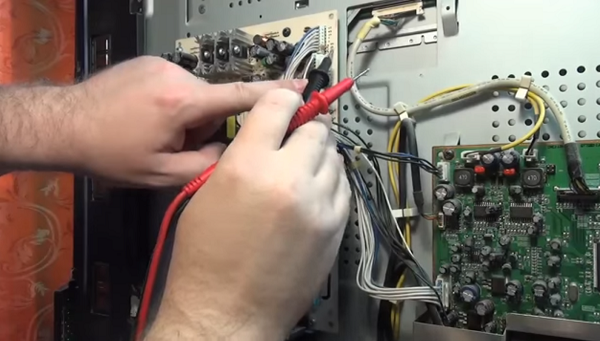
Measurement is taken first open circuitby connecting one probe to the found contact, and the other to the cathode of the diode on the radiator. In this case, there is no break.
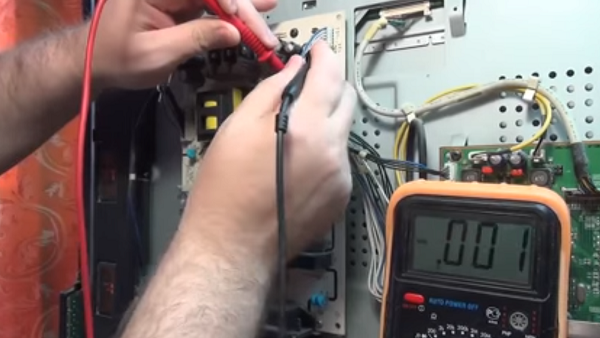

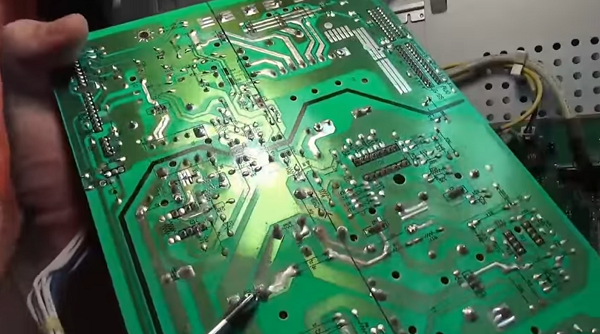


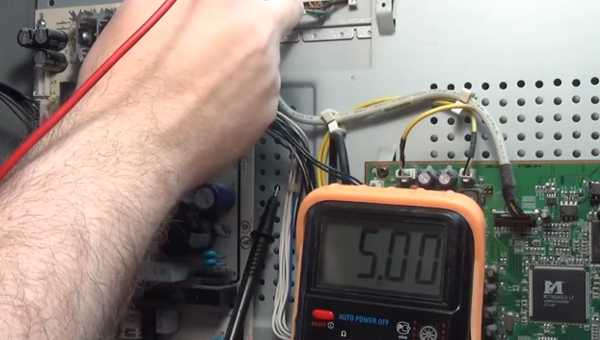


As you can see from the review presented above, repairing TV power supplies with your own hands is not such an overwhelming task. Following this description, you can also repair plasma TVs.
Do-it-yourself TV repair with a kinescope, for example, such as: Rubin, Horizon, Sharp 2002sc, LG TVs, as well as repair of the Vityaz TV, begins with checking the power supply unit for operability (this is done if the unit does not turn on).It is checked using incandescent bulbs for 220 V and a power of 60-100 W. But before that, be sure to disconnect the load, namely the horizontal output stage (SR) - connect the lamp instead. The CP voltage ranges from 110 to 150 V, depending on the size of the tube. Must be found in the secondary circuit SR filter capacitor (its values can be from 47 to 220 microfarads and 160 - 200 V), which stands behind the SR power rectifier.
To simulate the load, you need to connect a lamp in parallel to it. To remove the load, for example, in the popular Sharp 2002sc model, it is necessary to find and unsolder the inductor (located after the capacitor), the fuse and the limiting resistance through which the CP stage receives power.
Now you need to connect the power supply to the power supply unit, and measure the voltage under load. The voltage should be between 110 and 130 V if the CRT has a diagonal of 21 to 25 inches (as in the 2002sc model). With a diagonal of 25-29 inches - 130-150 V, respectively. If the values are too high, then it will be necessary to check the feedback circuit and the power supply circuit (primary).
It should be noted that electrolytes dry out during prolonged operation and lose capacity, which, in turn, affects the stability of the module and contributes to an increase in voltage.
When the voltage is too low it is necessary to test the secondary circuits to exclude leaks and short circuits. After that, the diodes for the protection of the power supply of the SR and the diodes for the power supply of the vertical scan are checked. If you are convinced that the power supply unit is working properly, then you need to disconnect the lamp and solder all the parts back. This check can also come in handy when doing DIY Philips TV repairs.
Another common breakdown of the TV that can be eliminated is the burnout of the backlight lamp. In this case, the TV receiver, after switching on, flashes the indicator several times and does not turn on... This means that after self-diagnosis, the device notices a malfunction, after which the protection is triggered. That is why there is no image on the screen.
For example, a Sharp LSD TV receiver with this malfunction was taken, although in this way it is possible to repair Samsung TVs, Sony Trinitron, Rubin, Horizon, etc.
-
To fix the TV, you need to remove the back panel from the TV. This requires a screwdriver or screwdriver.
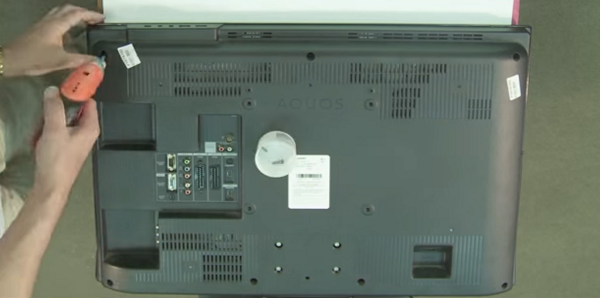


Next, you need to be careful disconnect loops from the matrix.
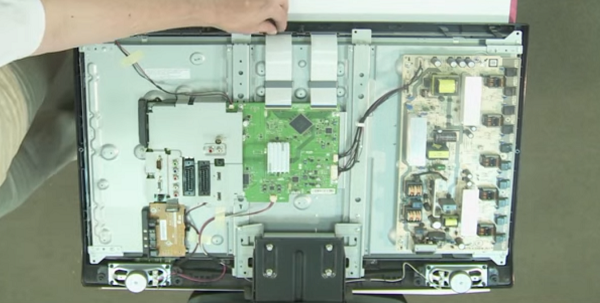

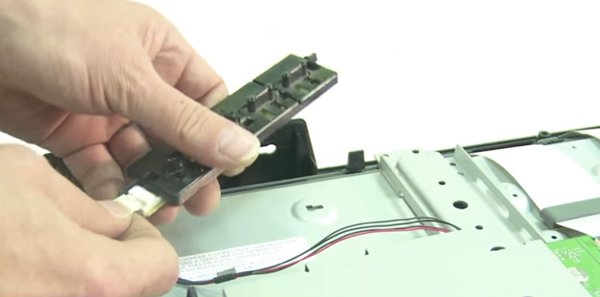


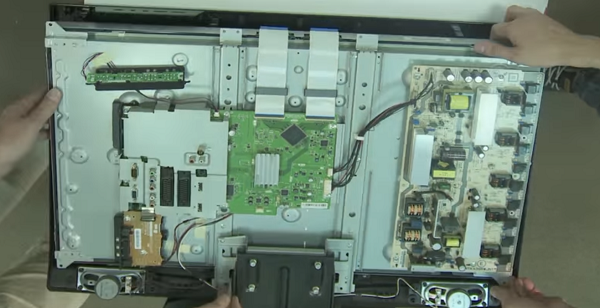


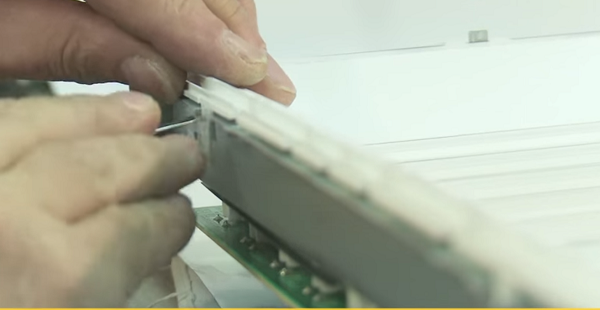


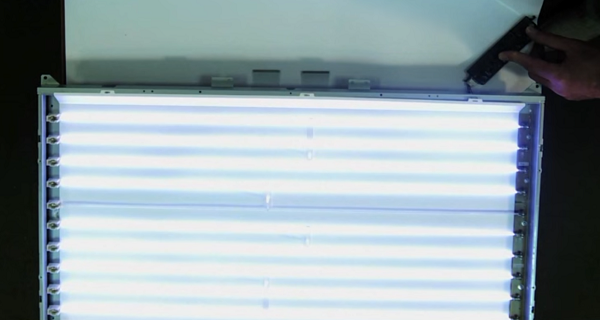


Thus, you can repair the Philips and LG TV with your own hands, and other LCD panels, as well as devices with LED backlight (LED). Owners of the latter type of devices should read the article on repairing LED backlighting, where the whole process is described in detail using the example of an LG TV.
Among the typical and simple reasons that the TV set does not turn on, there may be a remote control or a lack of signal from the antenna cable.
If the TV does not turn on with the remote control, first, you need to make sure the batteries are valid. If they are shrunken, replace them. Often the TV set cannot turn on due to contamination of contacts under the buttons. To do this, you can disassemble it yourself, and clean the contacts with a soft cloth from accumulated dirt. If your remote control has been dropped, it is possible damage to the quartz emitter... In this case, it must be replaced. Well, if you filled the remote control with water or some other liquid, and it did not work after disassembling and drying, then it will have to be replaced with a new one.
You can learn more about fixing the remote control in the following video or article.
When repairing TVs LG, Sharp with LCD, Rubin, Horizon with the same screens, a situation often arises when it does not turn on when the device is in good working order. It turns out that the reason may be no TV signal in the antenna cable. This happens due to the operation of the noise suppression protection (in Rubin TVs, they began to install it not so long ago), and the unit goes into standby mode. Therefore, if you find your TV set in an inoperative state, you should not panic, but you need to check the presence of a signal from the transmitting station.
In conclusion, we can say that when you decide to repair a TV set yourself, you should soberly assess your abilities and knowledge in this matter. If you do not feel confident, then it is better to entrust this matter to a telemaster, especially since nobody canceled 220 V, and ignorance of basic safety rules can entail unpleasant consequences.
Hello to all. And again, a TV with a faulty frame scan is being repaired. The repair turned out to be very easy, within the power of any novice TV technician.
So, TV TCL T-14001. I came for repairs with a horizontal strip about 5 cm in size. Within 10 minutes, the screen could expand to 15 cm, and with this size it remained for a long time. According to such signs, it was logical to assume that the problem is in the capacitors, since only they (in rare cases, microcircuits) can restore their properties when heated.
Taking apart the TV, I saw a pile of dust.
Armed with a vacuum cleaner, I cleaned the board a little, and proceeded to a visual inspection.
As expected, near the famous LA78040 microcircuit there was a swollen 1000 uF capacitor C308.
By replacing the capacitor, the TV worked like new.
I spent more time cleaning this TV than repairing myself :).
I don't know how informative this post was, but in view of the fact that there are not many TVs being transported now, I decided to publish all the repairs, maybe it will be useful to someone.

We remove the TV plug from the socket. Next, put the TV screen down on a flat surface so that the stand hangs down. If the stand is in the way, you can remove it by unscrewing the four screws from the bottom. Then we unscrew the screws around the perimeter of the case and two in the center - one large and one small near the connectors. We open the case.
We carefully inspect all components and blocks of the TV for visible damage. We have a dark screen, but there is sound. Most likely, the malfunction is in the backlight elements or its power supply circuit.
The power supply is on the left. The wires from 4 connectors go to the backlight. Nearby is a voltage converter transformer.
Some of the elements of the power supply unit connected to the network are not damaged. But in the secondary rectifier circuit, we see four swollen electrolytes. The voltage across them should be 12 V, in fact it is about 6 V. The capacitors need to be evaporated, checked and most likely replaced. To do this, disconnect the network connector, the main board power connector and the four backlight power connectors from the power supply. We unscrew the four screws securing the power supply board located in the corners and remove the board. We discharge the primary circuit capacitor after the diode bridge.It is better to discharge by briefly connecting a resistor of about 1 kOhm in parallel with the capacitor terminals. We replace damaged capacitors. To be sure, you can measure the capacitance of the capacitors.
The four damaged electrolytic capacitors are rated at 680 μF at 25 V. The actual capacitance of almost all is about 40 μF. The photo below shows the measurement of the capacitance of one of them, it is equal to 36 μF. Others are the same. Of course, this is unacceptable and the capacitors must be changed.

After replacing the capacitors, the voltage across them is 12 V. The backlight voltage converter worked and the TV did the same.
conclusions
1. The failed capacitors are in the 12 V voltage filter circuit, which powers the voltage converter for the backlight circuit, so the screen was dark.
2. When replacing capacitors, pay attention to the permissible temperature of the installed capacitors. It should be at least 105 degrees.
3. The scheme of this particular TV model could not be found. Its chassis is MT35034. There is a similar circuit for the Thomson TV, MT35 chassis, but the malfunction was not complicated, so there was no special need for the circuit.
The article material is duplicated on video:
It is no secret that a breakdown of a television receiver can ruin the mood of any owner. The question arises, where to look for a good master, do you need to take the device to a service center? You need to spend your time on this, and what is important - money. But, before calling the master, if you have basic knowledge of electrical engineering and know how to hold a screwdriver and a soldering iron in your hands, then repairing the TV with your own hands in some cases is still possible.
Modern LCD TVs have become more compact and easier to repair. Of course, there are breakdowns that are difficult to detect without special diagnostic equipment. But most often there are malfunctions that can be detected even visually, for example, swollen capacitors... With such a breakdown, it is enough to evaporate them and replace them with new ones with the same parameters.
All TV sets are the same in their structure and consist of a power supply unit (PSU), a motherboard and an LCD backlight module (lamps are used) or LED (LEDs are used). It is not worth repairing the motherboard on your own, but the power supply unit and screen backlight lamps are quite possible.
As already mentioned, the design and principle of operation of LED and LCD TVs, regardless of the manufacturer, are the same. Of course, there are some differences, but they do not play a significant role in the diagnosis of faults. Often, in the event of a problem with the power supply, the LCD TV does not turn on at all, while there is no indication, or it turns on for a while and turns off spontaneously. Using an example, the repair of a DAEWOO LCD power supply unit (can be applied to plasma) is considered, which is not much different from repairing an LG TV, as well as Toshiba, Sonya, Rubin, Horizon and similar models.
- First of all, before you repair the TV, you need to remove the back panel of the device with a screwdriver by unscrewing the screws. On some models, the rear wall may be latches installedwhich must be handled with care so as not to break them.
- After removing the cover, you will see the power supply unit, consisting of several modules on the left, and the motherboard on the right.
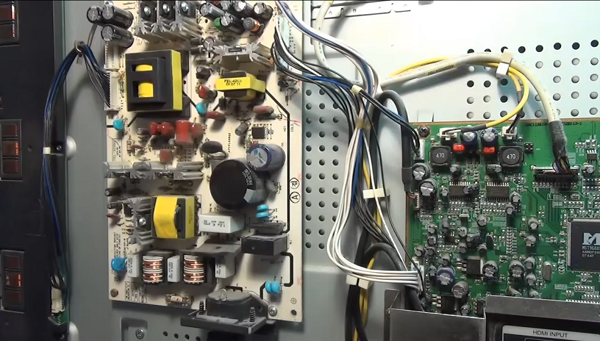
- On the power supply board you can see 3 transformers: the bottom one is the mains rectifier choke, the top one on the left (large) feeds the inverter, and on the right is the standby power supply transformer. You need to start checking with it, since it turns on the standby mode of the TV receiver.
- Duty transformer when the device is connected to the network, it should give out a voltage of 5 V. In order to correctly find the wire on which you need to measure the voltage, you can use the diagram, or you can see the markings on the case. In this case, opposite the required contact is written - 5 V.

Measurement is taken first open circuitby connecting one probe to the found contact, and the other to the cathode of the diode on the radiator. In this case, there is no break.








As you can see from the review presented above, repairing TV power supplies with your own hands is not such an overwhelming task. Following this description, you can also repair plasma TVs.
Do-it-yourself TV repair with a kinescope, for example, such as: Rubin, Horizon, Sharp 2002sc, LG TVs, as well as repair of the Vityaz TV, begins with checking the power supply unit for operability (this is done if the unit does not turn on). It is checked using incandescent bulbs for 220 V and a power of 60-100 W. But before that, be sure to disconnect the load, namely the horizontal output stage (SR) - connect the lamp instead. The CP voltage ranges from 110 to 150 V, depending on the size of the tube. Must be found in the secondary circuit SR filter capacitor (its values can be from 47 to 220 microfarads and 160 - 200 V), which stands behind the SR power rectifier.
To simulate the load, you need to connect a lamp in parallel to it. To remove the load, for example, in the popular Sharp 2002sc model, it is necessary to find and unsolder the inductor (located after the capacitor), the fuse and the limiting resistance through which the CP stage receives power.
Now you need to connect the power supply to the power supply unit, and measure the voltage under load. The voltage should be between 110 and 130 V if the CRT has a diagonal of 21 to 25 inches (as in the 2002sc model). With a diagonal of 25-29 inches - 130-150 V, respectively. If the values are too high, then it will be necessary to check the feedback circuit and the power supply circuit (primary).
It should be noted that electrolytes dry out during prolonged operation and lose capacity, which, in turn, affects the stability of the module and contributes to an increase in voltage.
When the voltage is too low it is necessary to test the secondary circuits to exclude leaks and short circuits. After that, the diodes for the protection of the power supply of the SR and the diodes for the power supply of the vertical scan are checked. If you are convinced that the power supply unit is working properly, then you need to disconnect the lamp and solder all the parts back. This check can also come in handy when doing DIY Philips TV repairs.
Another common breakdown of the TV that can be eliminated is the burnout of the backlight lamp. In this case, the TV receiver, after switching on, flashes the indicator several times and does not turn on... This means that after self-diagnosis, the device notices a malfunction, after which the protection is triggered. That is why there is no image on the screen.
For example, a Sharp LSD TV receiver with this malfunction was taken, although in this way it is possible to repair Samsung TVs, Sony Trinitron, Rubin, Horizon, etc.
-
To fix the TV, you need to remove the back panel from the TV. This requires a screwdriver or screwdriver.



Next, you need to be careful disconnect loops from the matrix.














Thus, you can repair the Philips and LG TV with your own hands, and other LCD panels, as well as devices with LED backlight (LED). Owners of the latter type of devices should read the article on repairing LED backlighting, where the whole process is described in detail using the example of an LG TV.
Among the typical and simple reasons that the TV set does not turn on, there may be a remote control or a lack of signal from the antenna cable.
If the TV does not turn on with the remote control, first, you need to make sure the batteries are good. If they are shrunken, replace them. Often the TV set cannot turn on due to contamination of contacts under the buttons. To do this, you can disassemble it yourself, and clean the contacts with a soft cloth from accumulated dirt. If your remote control has been dropped, it is possible damage to the quartz emitter... In this case, it must be replaced. Well, if you filled the remote control with water or some other liquid, and it did not work after disassembling and drying, then it will have to be replaced with a new one.
You can learn more about fixing the remote control in the following video or article.
When repairing TVs LG, Sharp with LCD, Rubin, Horizon with the same screens, a situation often arises when it does not turn on when the device is in good working order. It turns out that the reason may be no TV signal in the antenna cable. This happens due to the operation of the noise suppression protection (in Rubin TVs, they began to install it not so long ago), and the unit goes into standby mode. Therefore, if you find your TV set in an inoperative state, you should not panic, but you need to check the presence of a signal from the transmitting station.
In conclusion, we can say that when you decide to repair a TV set yourself, you should soberly assess your abilities and knowledge in this matter. If you do not feel confident, then it is better to entrust this matter to a telemaster, especially since nobody canceled 220 V, and ignorance of basic safety rules can entail unpleasant consequences.
| Video (click to play). |

